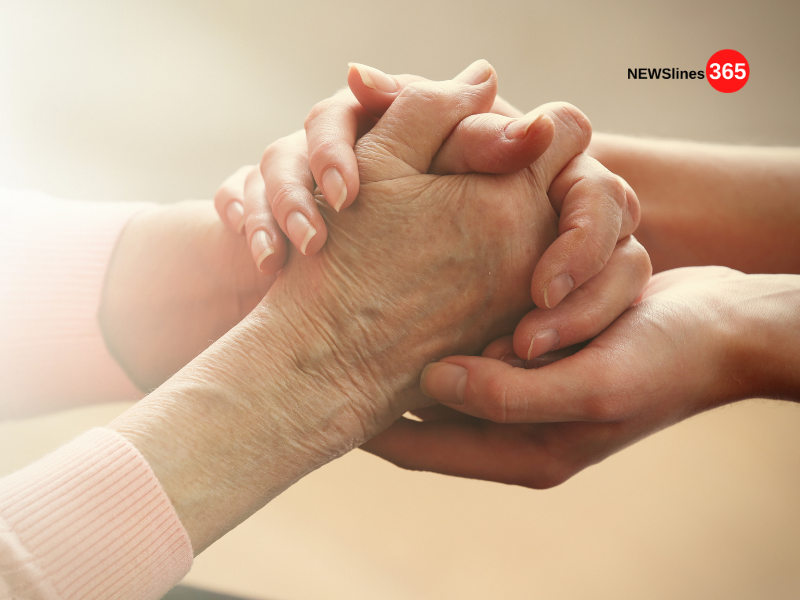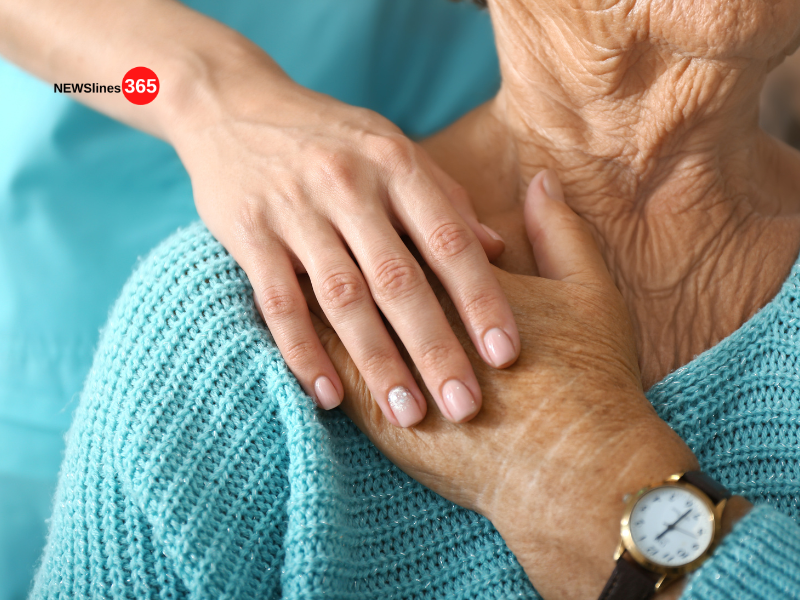What are the seven alarming signs
There are Seven Mental Health warning signs of elderly parents and How to keep them mentally healthy. First, you must understand that it’s common and everyone has to go through with it. But at the same time, it’s important to take care at an early stage before the mental health of your parents deteriorates. There should be no shame in discussing or taking mental health advice. Treat your elderly parent in the same way they treated you in your childhoods.
Please read or listen this article till the end for a better understanding of mental health problem and how to keep your parent mentally healthy.
There are seven common signs of deteriorating mental health of your elderly Parent(s), you should watch carefully before it gets worse:
- Difficulties in memorizing simple day-to-day work (e.g., name, place, color, person)
- Stop taking interest in meeting people and stop participating in social events
- Difficulty in sleeping or sleeping more than usual
- Anger, and irritability but not aggressiveness
- Prefer to stay alone
- Always negative about his/her future, and
- Loss of interest in eating, doing his/her favorite things
According to clinical psychologists, three out of every five elders suffer from some form of mental health condition, such as depression or anxiety, and cognitive decline, particularly memory loss. The likelihood of encountering issues with both mental and physical health at the same time might grow with age, and the two are intrinsically related. For instance, the World Health Organization reports that older persons who suffer from heart disease are more likely to experience depression than their non-diseased counterparts. Unfortunately, medical professionals frequently fail to recognize mental health disorders in the elderly, and the stigma associated with such illnesses might discourage persons from seeking mental health advice or treatment.
The need of focusing on the emotional well-being of the elderly is growing as the global population of those over 65 continues to rise at an alarming rate, particularly in developed countries. Age-related mental health declines may be the result of several physiological and cognitive changes. Age-related declines in hearing and vision can lead to feelings of loneliness, depression, anxiety, and social withdrawal, as well as the avoidance of activities once enjoyed like traveling, reading, and spending time with family and children. The inability to do Day-to-Day activities like getting out of bed, getting dressed, or eating can be exacerbated by feelings of hopelessness and worry, which can in turn worsen other chronic disorders like diabetes or heart disease.
Cognitive decline and an increased risk of mental health disorders are also caused by physical changes to the brain. Memorizing, recalling, learning simple things, and the ability to keep one’s emotions under control are just a few of the cognitive abilities that decline with age. However, as these alterations become more apparent, indicating a kind of dementia, they might raise the likelihood of further mental health issues, such as depression or anxiety that may require immediate cognitive and medical attention.
Depression, loneliness, and anxiety are just some of the bad feelings that may arise in an elderly person because of the loss of control they may experience as a result of aging and the accompanying changes in their senses and their ability to think and remember quickly. Clinical Psychologist suggests that the psychological and physiological changes that occur with age also raise one’s likelihood of developing persistent, chronic depression. Physical decline is also associated with an increased risk of mental health issues. For instance, older persons with impairments or extremely limited mobility are more likely to consider him/her useless and a liability to his/her children/caregivers.
Learn in 5 minutes How to keep baby warm in the winter and be ready.
According to Clinical psychologists, loneliness is a major contributor to mental illness in old age, and this has been linked to an increase in elderly anxiety and depression. People’s mental and emotional health suffered greatly due to loneliness. The fast-moving world has accelerated this loneliness problem.
However, there are still possibilities to keep your elderly parent mentally healthy by doing these simple things for them:

Cognitive level/personally by you:
- Children can be instrumental in keeping them happy and busy, at least one hour daily they should play or talk with children, if you don’t have one or you are living in a different place then please ensure that you or your children are talking to him at least once every day. At least text your parent morning and at bedtime.
- Set a day in a week when you can take them out or their best restaurant, or watch together any sports they like,
- At least once in a month take him/her to the person or bring the person home whom he/she likes most.
- Religious values are also prominent, try to ensure that they have access to nearby places and facilitate their visits (if he/she can?) or ensure that they have access to the online religious programs gram if they can otherwise try to do it by you or if you away then make sure that someone is there at home to help them.
- Make sure that you are monitoring his/her blood pressure every day if possible then trained them how to check blood pressure and also ensure that at least once every three months take him/her for regular check-ups with a doctor who is easily accessible don’t try to find the best doctor in your city as they need attention not a super-specialist in day-to-day work.
- Request them to walk in the morning and evening for at least 15 minutes daily, if the weather is not good then they do yoga at home. There are many online Yoga classes choose one or two, but according to their interest not what you like.
News wave of COVID-19 is expected please “Prepare Now: Brace for a New Wave of COVID-19 this Winter”
Much needed Aid/support system to deal with Seven Mental Health warning signs

- Provide him/her hearing Aid as due to hearing loss it can be difficult for them to listen and reply correctly. If they already have it please check regularly especially when you feel that they didn’t reply well.
- Twice a year visit an eye specialist for regular check-ups vision distortion is very fast at this age and if they don’t wear the correct glasses it can create more problems than helping them.
- We always trying to keep them in their era, which is utterly wrong they are in the technological era so try to teach them handling of smartphones phones, gadgets, etc. Like they did for you in your childhoods.
- There are plenty of devices available, so give them Alexa Eco or any other voice-operated device so that they could easily operate and maintain. Don’t forget to teach them, especially how to connect Wi-Fi-enabled devices with Wi-Fi, etc.
- Install sensor-operated light bulbs in the bathroom.
- Provide them with wheelchairs and modify your home entry and exit so that they could easily commute.
Finally, let your parents (him/her) know that they are an asset for you, not a liability.
Social Media:
https://twitter.com/NEWSlines365
https://www.facebook.com/profile.php?id=100087973638782
https://www.reddit.com/user/NEWSlines365
Youtube videos:
1. Learn in 5 minutes how to respond to a measles outbreak: https://youtu.be/7DLF6kKjPj0 2.
2. Learn in 5 minutes How to keep baby warm in the winter and be ready https://youtu.be/EUOdkJwkR0w
3. Learn COVID-19 in 3 minutes and prepare for your dream JOB in WHO and UNICEF https://youtu.be/4bp-bnLiXP4
In conclusion, thank you for taking the time to give us your feedback and comment. We truly appreciate your input and look forward to continuing to provide useful and quality content for our YouTube audience. We invite you to let us know what else we could prepare and share on this YouTube channel so that we can continue to serve our viewers in the best way possible.
Best wishes,
by Alexander Han














